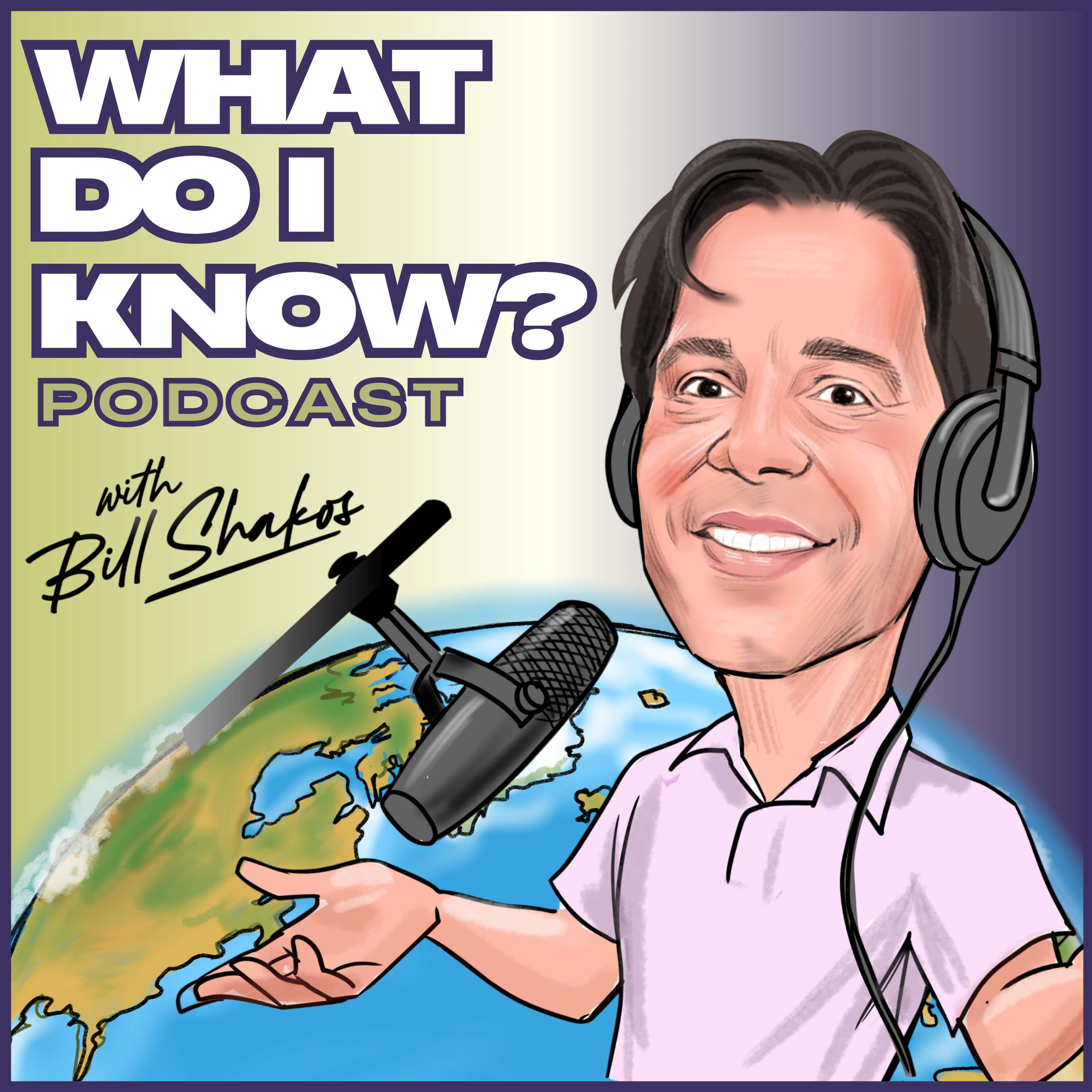What Do I Know? with Bill Shakos

What Do I Know? with Bill Shakos
Podcast Description
Curiosity. Empathy. Real Conversations.
Join host Bill Shakos, a self-proclaimed Serial Meet and Greet Guy (SMAGG), as he dives deep into honest conversations that explore identity, community, and the invisible walls that divide us. Through humor, humility, and deeply empathetic storytelling, Bill challenges what we think we know about people who are different. So, he set out to connect with people from all walks of life—one story at a time.
Podcast Insights
Content Themes
The podcast covers a diverse range of themes including identity, community dynamics, and the impact of local government. Specific episodes delve into topics such as navigating racism in suburban neighborhoods, engaging with local politics as a means for empowerment, and personal reflections on life changes after the pandemic.

Curiosity. Empathy. Real Conversations.
Join host Bill Shakos, a self-proclaimed Serial Meet and Greet Guy (SMAGG), as he dives deep into honest conversations that explore identity, community, and the invisible walls that divide us. Through humor, humility, and deeply empathetic storytelling, Bill challenges what we think we know about people who are different. So, he set out to connect with people from all walks of life—one story at a time.
Welcome, friends.
Today we’re exploring gratitude — not just an emotion, but a mindset, a skill, and a way of seeing the world that can reconnect you to what truly matters.
As we get older, many of us experience a quiet crisis of purpose. The goals that once fueled us lose their spark. Achievements feel less fulfilling. Comparison creeps in. Gratitude offers a way back — not by reinventing yourself, but by remembering yourself.
In this episode, I’m joined by my closest friend, Jesse Shafer (from Episode 1), to reflect on my journey through making the podcast fueled by a recent crisis of purpose that pushed me to rethink my life, my goals, and my relationships. With encouragement from a mentor, I set out on a journey that led to ten powerful conversations — many with people I had never met before — spanning seniors, veterans, LGBTQ youth, people with disabilities, public servants, and families navigating homelessness and affordable housing.
Along the way, I confronted my own assumptions, felt the weight of others’ lived experiences, and discovered how deeply human connection can expand your understanding of the world.
Balancing genuine sentiment with ‘off the cuff’ humor (we can’t resist), Jesse and I look back on:
- The impact privilege on gratitude
- My struggles with imposter syndrome
- The importance of empathy, curiosity, and listening without judgment
- The unexpected joy and wisdom found in our own community
And to anyone feeling lost or questioning their purpose: practicing gratitude won’t fix everything, but it can change the way you see everything.
You don’t need to be remembered for what you had — but for how you lived and how you made others feel.
One day my kids — maybe even my grandkids — will listen to these conversations. I did this to become a better person. To practice curiosity, empathy, and presence. To prove there’s more wisdom in a stranger’s story than in any book. To remind you that being human is messy… but it’s worth it.
This podcast isn’t about being important. It’s about being present.
Thank you friends for listening. And thank you for being part of this journey.

Disclaimer
This podcast’s information is provided for general reference and was obtained from publicly accessible sources. The Podcast Collaborative neither produces nor verifies the content, accuracy, or suitability of this podcast. Views and opinions belong solely to the podcast creators and guests.
For a complete disclaimer, please see our Full Disclaimer on the archive page. The Podcast Collaborative bears no responsibility for the podcast’s themes, language, or overall content. Listener discretion is advised. Read our Terms of Use and Privacy Policy for more details.